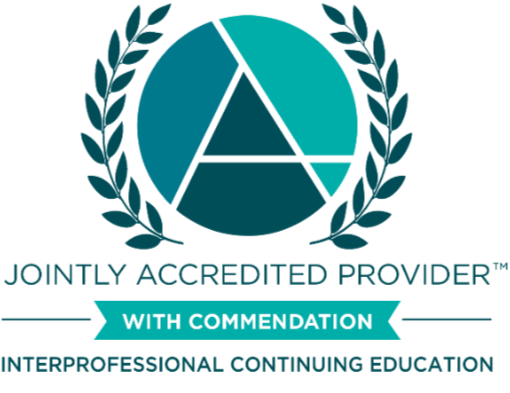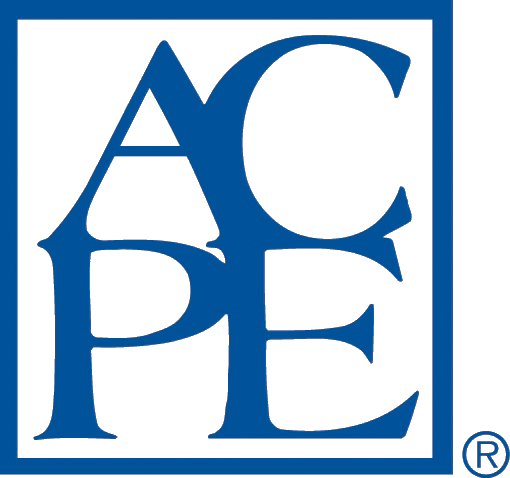Create an account or log in to participate in this activity
Prescribe to Prevent: Overdose Prevention and Naloxone Rescue Kits for Prescribers and Pharmacists is an online educational program for prescribers, pharmacists, and other healthcare providers that will help you prevent overdoses among your patients and their social networks. Through the program you will see videos of patient-pharmacist-prescriber encounters that model how to provide a patient overdose education and a naloxone rescue kit.
This program also includes brief videos that demonstrate model conversations between prescribers, pharmacists, and patients. Find them here.
By participating in this program, you will learn learn how to:
This program is provided by Boston University Chobanian & Avedisian School of Medicine and is supported by the Substance Abuse and Mental Health Services Administration of the US Department of Health and Human Services. It offers continuing education for physicians, pharmacists, nurse practitioners, physician assistants, and nurses.
The online program is a companion to the website www.prescribetoprevent.org, which includes resources to help health care providers educate their patients to reduce overdose risk and provide naloxone rescue kits to patients and their social networks.
In addition to all the individuals whose work made this program possible, we would like to particularly thank the University of Rhode Island for the use of the School of Pharmacy Building and CVS/Caremark for access to film in the Model Pharmacy. In addition, we would like to thank the following individuals for their invaluable assistance during the video shoot:

In support of improving patient care, Boston University Chobanian & Avedisian School of Medicine is jointly accredited by the Accreditation Council for Continuing Medical Education (ACCME), the Accreditation Council for Pharmacy Education (ACPE), and the American Nurses Credentialing Center (ANCC), to provide continuing education for the healthcare team.
Boston University Chobanian & Avedisian School of Medicine designates this educational activity for a maximum of 1.25 AMA PRA Category 1 Credit(s)™. Physicians should only claim credit commensurate with the extent of their participation in the activity.
This program meets the criteria of the Massachusetts Board of Registration in Medicine for 1.25 hours of risk management study.
This program meets the criteria of the Massachusetts Board of Registration in Medicine for 1.25 hours of opioid prescribing education.
Contact Hours: 1.25, of which .5 are eligible for pharmacology credit.

This activity is approved for 1.25 CPE credit(s) under the ACPE universal activity number (UAN) TBD. The activity is available for credit claiming for up to 60 days after completion of the activity.
Initial Activity Release Date: 10/15/2014
Activity Update: 02/14/2025
Date of Most Recent Review: 02/14/2025
Activity Expiration Date: 02/13/2028
In order to receive credit, participants must view the content of the program and complete the post-test and evaluation. Participants who receive a grade of 70% or greater on the post-test will receive credit.
This program is provided by Boston University Chobanian & Avedisian School of Medicine. The development of the original content was supported by an unrestricted educational grant from the Substance Abuse and Mental Health Services Administration of the US Department of Health and Human Services.
Physicians, pharmacists, nurse practitioners, physician assistants, and nurses.
At the conclusion of this activity, participants will be able to:
For questions about CME, please contact cme@bu.edu or cme.bu.edu.
To view Boston University’s Privacy Policy, please see https://cme.bu.edu/content/privacy-statement.
Boston University Chobanian & Avedisian School of Medicine asks all individuals involved in the development and presentation of Accredited Continuing Education activities to disclose all financial relationships with ineligible companies. This information is disclosed to all activity participants prior to the start of the educational activity. Boston University Chobanian & Avedisian School of Medicine has procedures to mitigate all relevant financial relationships with ineligible companies. In addition, faculty members are asked to disclose when any unapproved use of pharmaceuticals and devices is being discussed.
In accordance with the Standards for Integrity and Independence in Accredited Continuing Education, all relevant financial relationships with ineligible companies that faculty, planners, authors and anyone who may be in control of content have been mitigated.
Daniel P. Alford, MD, MPH, FACP (Course Director)
Professor of Medicine
Boston University Chobanian & Avedisian School of Medicine
Boston Medical Center
Faculty member has no relevant financial relationships to disclose. Faculty member indicates that he does not plan to discuss unlabeled/investigational uses of a commercial product.
dan.alford@bmc.org
Alexander Y. Walley, MD, MSc (Course Co-Director)
Assistant Professor of Medicine
Co-Program Director, Addiction Medicine Fellowship Program Program
Director, Fellow Immersion Training Program
Boston University Chobanian & Avedisian School of Medicine and Boston Medical Center
Faculty member is a consultant for Social Sciences Innovation Research, Inc. Faculty member indicates that he does plan to discuss unlabeled/investigational uses of a commercial product. The intra-nasal delivery of naloxone is not approved by the FDA.
Donna Beers BSN, RN-BC, CARN
Nurse Manager
TOPCARE Project
Boston Medical Center
Faculty member has no relevant financial relationships to disclose. Faculty member indicates that he does not plan to discuss unlabeled/investigational uses of a commercial product.
Jeffrey Bratberg, PharmD, BCPS
Clinical Professor of Pharmacy
University of Rhode Island College of Pharmacy
Infectious Disease Specialist
Roger Williams Medical Center, Providence, RI
Faculty member is a consultant for and on the speakers bureau for Merck, and on the speakers bureau for Sanofi Pasteur. Faculty member indicates that he does plan to discuss unlabeled/ investigational uses of a commercial product. The intra-nasal delivery of naloxone is not approved by the FDA.
Corey Davis, JD, MSPH
Deputy Director
The Network for Public Health Law
Faculty member has no relevant financial relationships to disclose. Faculty member indicates that he does plan to discuss unlabeled/investigational uses of a commercial product. The intra-nasal delivery of naloxone is not approved by the FDA.
Traci Green, PhD, MSc, Video Actor; and Nkiruka Emeagwali, MD, Video Actor, have no relevant financial relationships to disclose. They do discuss unlabeled/investigational uses of a commercial product. The intra-nasal delivery of naloxone is not approved by the FDA.
Ilana Hardesty, MA, Assistant Director, Boston University Chobanian & Avedisian School of Medicine CCE, has no relevant financial relationships to disclose.
THIS CONTINUING MEDICAL EDUCATION PROGRAM IS INTENDED SOLELY FOR EDUCATIONAL PURPOSES FOR QUALIFIED HEALTH CARE PROFESSIONALS. IN NO EVENT SHALL BOSTON UNIVERSITY BE LIABLE FOR ANY DECISION MADE OR ACTION TAKEN IN RELIANCE ON THE INFORMATION CONTAINED IN THE PROGRAM. IN NO EVENT SHOULD THE INFORMATION CONTAINED IN THE PROGRAM BE USED AS A SUBSTITUTE FOR PROFESSIONAL CARE. NO PHYSICIAN-PATIENT RELATIONSHIP IS BEING ESTABLISHED. IN NO EVENT SHOULD INFORMATION IN THE MATERIALS REGARDING LAWS, REGULATIONS, OR LEGAL LIABILITY BE CONSIDERED LEGAL ADVICE OR USED AS A SUBSTITUTE FOR CONSULTING WITH AN ATTORNEY.
SCOPE of Pain
© 2025 Trustees of Boston University. Site by Root802.